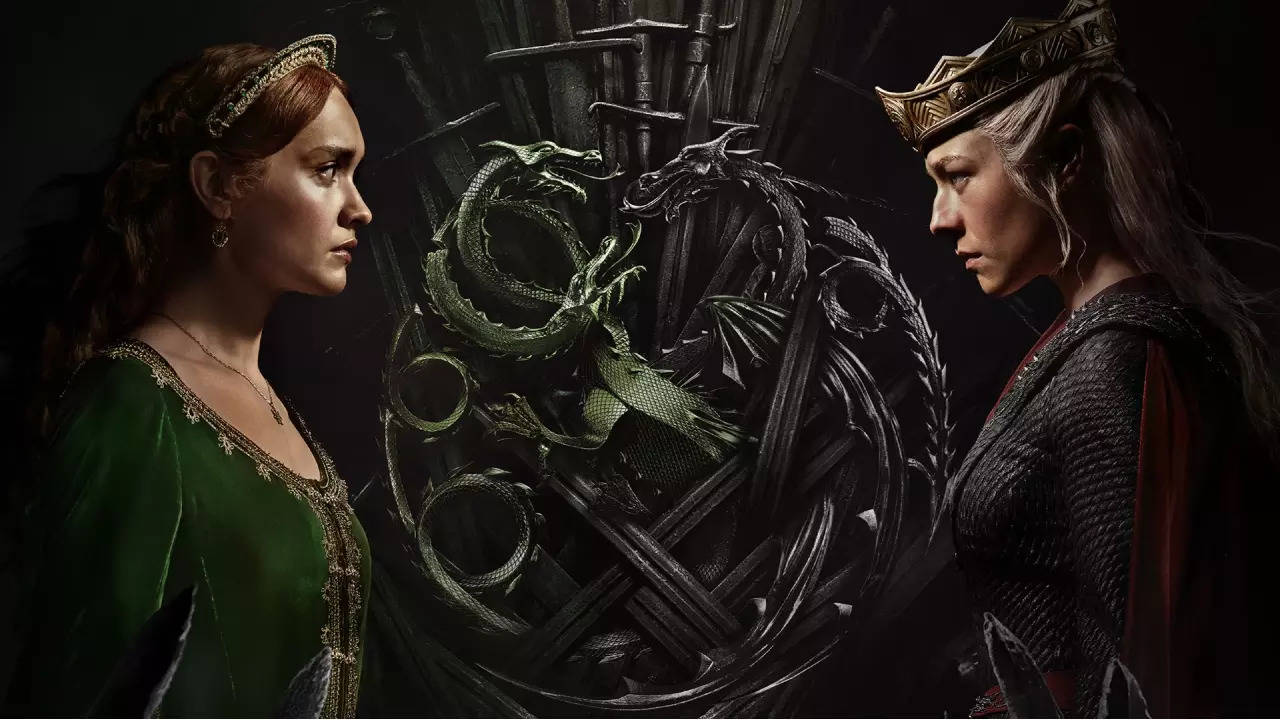The episode starts right after Jaehaerys’ death, triggering chaos among the Greens.King Aegon II Targaryen, played by Tom Glynn-Carney, swiftly declares war. Alicent, portrayed by Olivia Cooke, experiences profound grief and guilt, processing the tragic event like a slow-healing wound.
A significant portion of the 72-minute episode focuses on the emotional and political turmoil following Jaehaerys’ death. Alicent and Helaena, played by Phia Saban, decide to accompany Jaehaerys’ decapitated body in a funeral procession intended to unite the kingdom in shared grief. This poignant scene is beautifully captured by cinematographer Alejandro Martinez, with a moving score by Ramin Djawadi enhancing the somber atmosphere.
Rhaenyra Targaryen, played by Emma D’Arcy, finds herself blamed for Jaehaerys’ murder. In a heated confrontation with Daemon, portrayed by Matt Smith, Rhaenyra passionately denies any involvement, insisting she would never condone the killing of a child, especially after losing her own son. This exchange highlights the growing rift between the once-united pair.
The episode also follows Arryk’s mission to Dragonstone, where he is ordered to kill Rhaenyra. The ongoing cycle of revenge brings widespread fear and suspicion among the common folk. As prices soar and the king orders the execution of all ratcatchers, the bodies are displayed publicly, showcasing the harsh consequences of the power struggles. This turmoil predominantly affects the women, who suffer in private while the men’s decisions wreak havoc.
The climax of the episode is marked by intense clashes, fierce battles, and bold declarations. The men, driven by their impulses, make reckless decisions, leading to one of the most brutal and gripping moments of the season. This powerful episode serves as a stark reminder of the devastating impact of power struggles and the reason the show continues to captivate its audience.


